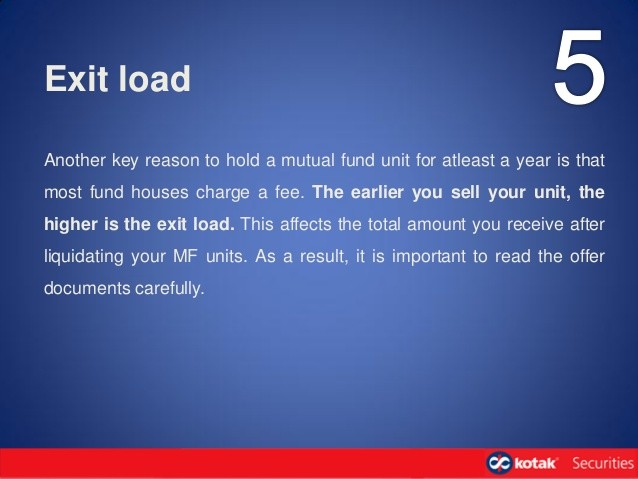Top 5 Reasons to Sell Mutual Funds
Post on: 5 Апрель, 2015 No Comment

Recent Posts:
Top 5 Reasons to Sell Mutual Funds
Failing to recognize when to sell a mutual fund is one of the most common portfolio management mistakes investors make.
Often, with the best of intentions in mind, long-term investors tend to employ buy-and-hold strategies and selling a fund feels like they are abandoning their planning objectives. However, being a long-term investor does not necessarily mean a holding mutual fund for the long term no matter what. In fact, not selling a bad fund can seriously undermine the investment objective itself.
Also, in scenarios where investors finally decide to dump their mutual fund dogs, they only make that decision after years of underperformance. Furthermore, poor performance is only one of the potential reasons to sell a mutual fund. Many other sell signals can arise before the fund actually begins its under-performance.
Here are the top five reasons to sell a mutual fund:
1. Sell a Mutual Fund if it Consistently Under-Performs its Benchmark
You might be happy with your funds performance, but how do you measure that performance? For example, you may be happy with a 10% return last year, but what if the average fund in the same category gained 20%?
A baseline that guides investment decisions and fund performance is wise. If the fund fails the benchmark because of consistent poor performance, sell it. For example, if you own an actively managed, large-cap stock fund, a typical and healthy benchmark for this is the S&P 500 Index .
Keep in mind that even the best fund managers lose to their respective benchmarks up to one out of every three to five years. Therefore, dont panic if the one-year performance is below the benchmark.
But performance below the benchmark for two consecutive years should be a red flag.
2. Sell a Mutual Fund if the Fund Manager Changes
A change in managers for a passively managed fund, such as an index fund, is not a problem. On the other hand, a change in managers can be a huge problem for actively managed funds. When a lead manager stays on board for several months or even years to train the newly added managers to ensure continued success and stability, you can watch the fund performance closely after the change before selling shares.
Fund managers are especially crucial to performance when they are a perceived as the driving forces behind security selections. Notice the use of the word perceived. If Warren Buffett retired from Berkshire Hathaway (BRK.B ), Charlie Munger might be perfectly suited to take the helm. Even so, just the perception and brand of Buffetts name is enough to put negative pressure on Mungers management of Berkshires performance.
3. Sell a Mutual Fund if it Gets Too Big
Dont ignore asset bloat. In the world of mutual funds, smaller is often performs better than larger.
A typical scenario is a fund manager does well with security selection and timing for a few years, the fund attracts billions of dollars in assets, the mutual fund is too greedy to close the fund to new investors, and the assets under management get so big that the manager is forced to buy more holdings (often at increasingly higher market caps).














